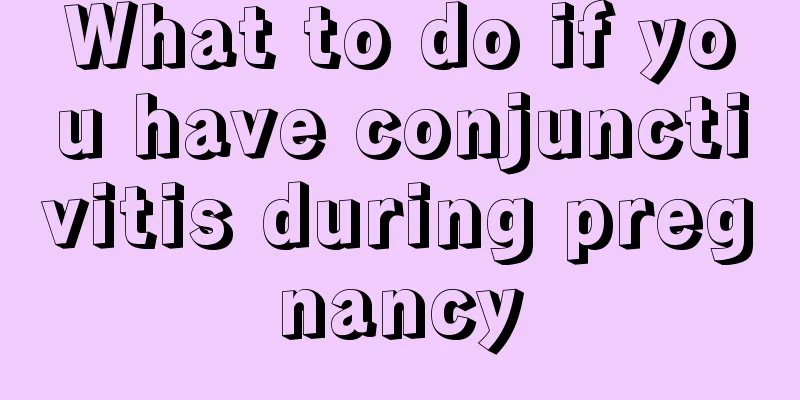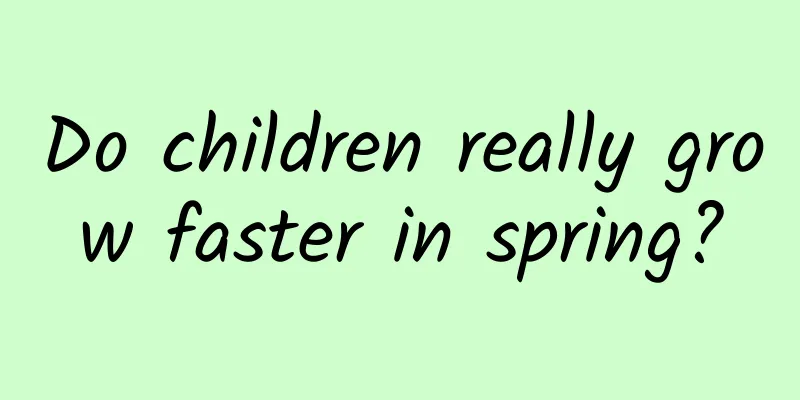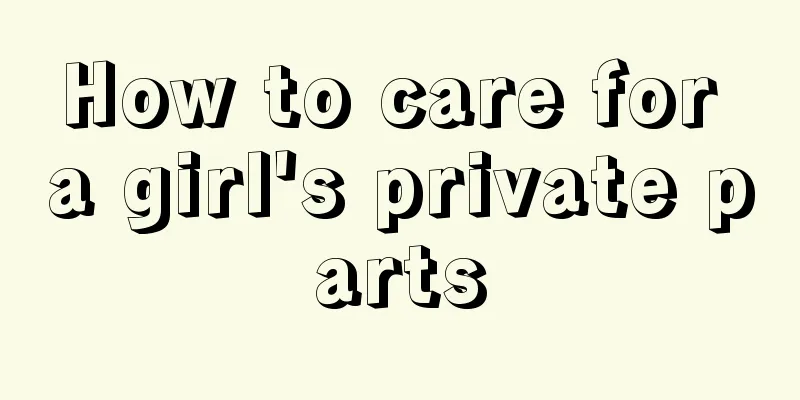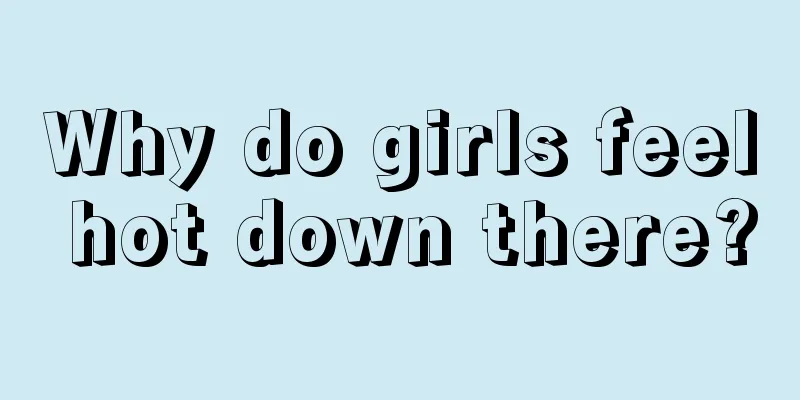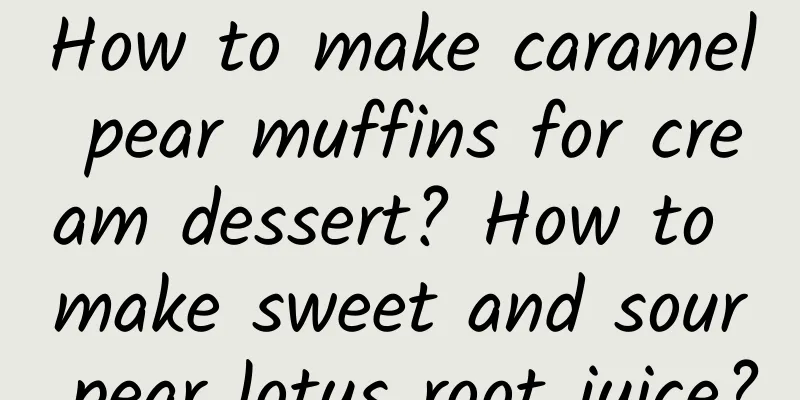Why are babies born with teeth? Will it have any effect if the teeth fall out?
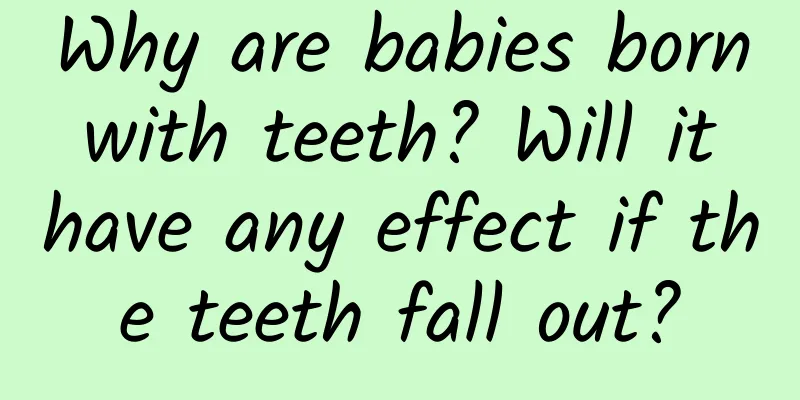
|
Children are born without teeth. It is rare for them to have teeth at birth, and it will affect the mother's breastfeeding. So can the teeth that babies are born with be removed? Why are babies born with teeth?When a baby is born with teeth, there are two types of teeth: real deciduous teeth and supernumerary teeth. The roots of deciduous teeth are deeper and more fixed. If they are supernumerary teeth, they grow crookedly and are looser because their roots are shallower. When the fetus develops to 6 to 8 weeks, a tooth germ begins to appear in the epithelium of his oral mucosa. This is the future tooth. Normally, it starts to emerge half a year after the birth of the fetus. However, if the tooth germ is too close to the surface of the gums, it will be easy to emerge because it is too shallow. As soon as the tooth germ develops, it will be easy to emerge. This is related to the position of the tooth germ, not calcium. If a baby is born with teeth that fall out, will it have any impact on the future?You need to consult a professional dentist about this. Which type of teeth are the ones that your child has grown? Are they extra teeth or real deciduous teeth? If you can't tell the difference between these types of teeth, don't touch or pull them out easily. If it is a real deciduous tooth, it will develop very firmly in 2 to 4 months. If it is extracted, it will affect the child's speech and pronunciation, and it may be difficult for that tooth to grow again. If the child has teeth, it is easier for him to bite the nipple, which will cause pain to the pregnant mother and make feeding more difficult. Another possibility is that biting the nipple can easily cause milk blockage, which can easily cause the pregnant mother to become irritable. Many pregnant mothers are afraid to breastfeed because of being bitten by their babies. If the baby bites the nipple badly, you can use a breast pump to suck out the milk and then feed the baby. When using a breast pump, be sure to squeeze both breasts, not just one side. Empty the breasts every time, and be sure to disinfect before squeezing milk, otherwise it is easy to get infected. How to remove baby's horse teethWhen a newborn is born, small yellow dots, about the size of a sesame seed, can often be seen next to the midline of the upper palate and on the edge of the gums. They are commonly known as "horse teeth", but they are not real teeth. The follicles are actually caused by the accumulation of epithelial cells or the retention and swelling of urinary glands during embryonic development. They will not hinder the sucking of newborns, nor will they affect the normal growth of teeth in the future. Because they can disappear by themselves a few weeks after the baby is born, or disappear due to repeated friction when the baby is feeding. Some elderly people think that milk teeth affect the baby's ability to drink milk, and some elderly people think that this is a bad symptom, so they use a needle to pick it out. But in fact, this practice is wrong and dangerous. Because the oral mucosa of newborns is very tender, the saliva production is relatively small, it is easy to cause damage, and the blood vessels under the mucosa are very complex, bacteria can easily invade the blood from the damaged parts, and severe cases can cause neonatal sepsis. |
Recommend
What is the core of what Liu Genghong said? Don’t wait until you get hurt to understand!
Mixed Knowledge Specially designed to cure confus...
What to do if leucorrhea is like yogurt
Everyone loves beauty, especially women. However,...
Why is the female lower body unclean?
We all know that women have a menstrual cycle eve...
Do hematopoietic stem cell transplant patients have to live alone after being discharged from the hospital? What should be paid attention to in the living environment?
Author: Yan Xia, deputy chief nurse, Peking Unive...
What to do if a woman has a prolapsed uterus?
In our daily life, many women are always troubled...
What are the dangers of taking breast enhancement drugs? You must know if you love your figure
Breast enhancement is something that many women p...
Can mastitis suppuration be cured by puncture?
Mastitis is a common breast disease in women. Acc...
Is cornual pregnancy related to sleeping position?
There is no close relationship between uterine ho...
The sooner you treat shingles, the better.
Recently, singers Cai Guoqing and Na Ying were re...
The effect of water treatment on fallopian tube adhesion
Some female patients have physical problems, espe...
When you return to work after the holidays, don’t let your digestive tract get upset! Please check out this health guide
Author Jing Xiying Unit: Shanxi Bethune Hospital ...
How to lose weight during menstruation for women
Menstruation is a process exclusive to women. It ...
Can I eat apples during the confinement period?
Apples are fruits that can be bought all year rou...
The feeling of cramping when the fertilized egg implants
After having sex, women can usually check their p...
What should I pay attention to after the drug abortion
Medical abortion is a method of abortion, which i...


